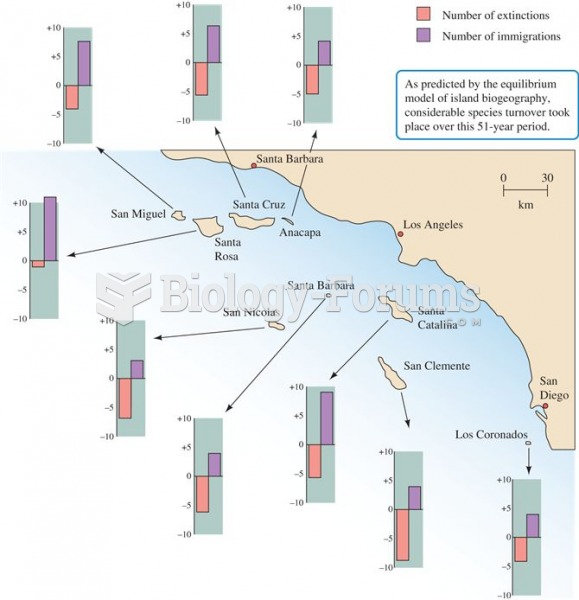|
|
|
The first successful kidney transplant was performed in 1954 and occurred in Boston. A kidney from an identical twin was transplanted into his dying brother's body and was not rejected because it did not appear foreign to his body.
Most strokes are caused when blood clots move to a blood vessel in the brain and block blood flow to that area. Thrombolytic therapy can be used to dissolve the clot quickly. If given within 3 hours of the first stroke symptoms, this therapy can help limit stroke damage and disability.
Addicts to opiates often avoid treatment because they are afraid of withdrawal. Though unpleasant, with proper management, withdrawal is rarely fatal and passes relatively quickly.
Today, nearly 8 out of 10 pregnant women living with HIV (about 1.1 million), receive antiretrovirals.
More than 30% of American adults, and about 12% of children utilize health care approaches that were developed outside of conventional medicine.
 Extinction and immigration of bird species on the California Channel Islands between 1917 and 1968 (
Extinction and immigration of bird species on the California Channel Islands between 1917 and 1968 (
 Urinary tract infection. A UTI is characterized by fever, lumbar or abdominal pain, and pain or burn
Urinary tract infection. A UTI is characterized by fever, lumbar or abdominal pain, and pain or burn





